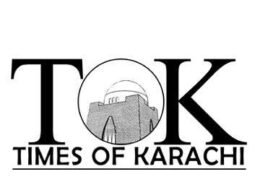Several members of the business community in Karachi are opting to enter the political arena themselves rather than supporting candidates from established political parties in the upcoming elections. Dissatisfied with the prevailing political landscape, some businessmen and their children are running as independent candidates or aligning with various political parties. These business candidates are seeking to represent their interests directly and address the concerns of their respective constituencies.
Key Points:
-
Shift in Business Community Participation:
- Traditionally, members of the business community in Karachi have supported political candidates financially or in other ways. However, a noticeable shift is observed as some business individuals and their children choose to run as candidates in the elections.
-
Independent Candidates and Party Affiliations:
- Business candidates are taking diverse approaches, with some running as independent candidates and others aligning with mainstream or emerging political parties. The decision to run independently is, in some cases, driven by a perception that existing candidates do not adequately represent their interests.
-
Reasons for Independent Runs:
- Some candidates view their independent runs as a response to dissatisfaction with the performance of political parties over the past decade and a half. There is a sentiment among voters that elected candidates often neglect their constituencies after winning elections.
-
Focus on Public Welfare:
- Independent candidate Barrister Mujtaba Sum Sum emphasizes a commitment to working for the people and rejects the notion of exploiting funds allocated for projects in the constituency. His candidacy reflects a desire for positive change in the political system.
-
Age and Experience Variation:
- Candidates vary in age and experience, with Barrister Mujtaba Sum Sum, at 25 years old, representing a younger demographic. Other candidates, such as Farazur Rahman and Mohammad Rizwan Irfan, bring diverse backgrounds, including experience in trade, industry, and association leadership.
-
Issues and Priorities:
- Business candidates identify issues such as industry grievances, public concerns, water supply, sewerage, and infrastructure as their priorities. They aim to address these issues and bring about change through representation in the electoral process.
-
Diverse Political Affiliations:
- The candidates are associated with different political affiliations, including support from the Pakistan Peoples Party (PPP), Tehreek-i-Labaik Pakistan (TLP), and independent runs. The diversity reflects varied political landscapes within Karachi.
-
Election Expenditure:
- Some candidates, like Farazur Rahman, opt for simple and cost-effective campaigns, focusing on the welfare of deserving people rather than lavish spending. This approach aligns with a commitment to prioritize funds for the betterment of the community.
The emergence of business community members as independent candidates and their alignment with different political parties highlights a dynamic shift in political participation and a desire for more direct representation in Karachi’s electoral landscape. The candidates emphasize the need for practical results and responsiveness to constituents’ concerns.






